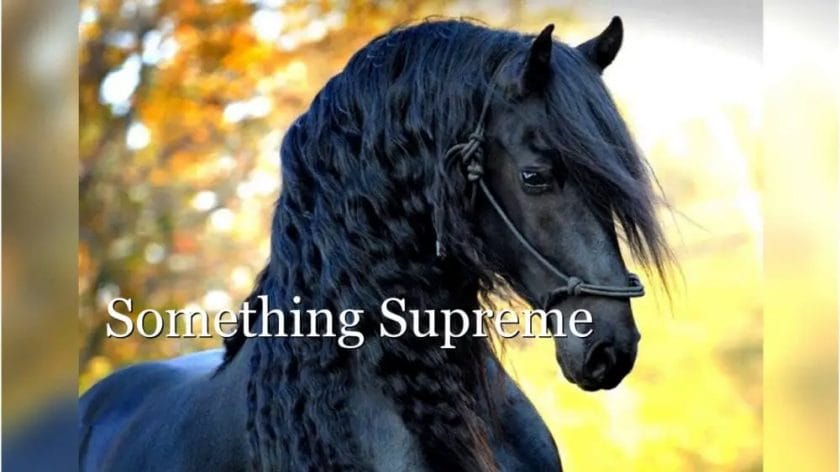If you are wondering whether it’s possible to change a horse’s name, the answer is yes! Changing a horse’s name is a relatively common practice in the equine world. While many horses are given names by their breeders or previous owners, the new owner often has the option to change it to better suit their preferences or to create a fresh start for the horse. However, it’s important to consider the horse’s familiarity with its current name and to introduce any new name gradually to ensure a smooth transition.

How to Choose the Perfect Name for Your Horse
Choosing the perfect name for your horse is an important decision. It not only reflects your horse’s personality and characteristics, but it also becomes a part of their identity. Whether you are a new horse owner or looking to rename your current horse, here are some tips to help you choose the perfect name:
1. Consider Your Horse’s Appearance and Breed
Take a close look at your horse’s physical appearance and consider their breed. Are they a majestic Arabian or a sturdy Quarter Horse? Do they have unique markings or coloring? Use these characteristics as inspiration when brainstorming name ideas. For example, if your horse has a beautiful white mane, you could consider names like “Snowflake” or “Casper.”
2. Reflect Their Personality
Every horse has their own unique personality. Observe your horse’s behavior and temperament. Are they calm and gentle or spirited and energetic? Choose a name that reflects their personality traits. If your horse is known for being playful, you could consider names such as “Buddy” or “Jester.”
3. Draw Inspiration from Their Origin or Heritage
If your horse has a specific breed or comes from a particular region, you can draw inspiration from their origin or heritage. For example, if you have a Friesian horse with Dutch lineage, you could consider names like “Amsterdam” or “Dutchess.” This not only adds a unique touch to your horse’s name but also celebrates their heritage.
4. Keep It Simple and Easy to Pronounce
When choosing a name for your horse, it is important to keep it simple and easy to pronounce. Avoid names that are too long or complicated, as it may be challenging for others to remember or pronounce correctly. Opt for short and catchy names that roll off the tongue easily.
5. Avoid Common Names
While it may be tempting to choose a popular or trendy name for your horse, it is best to avoid common names. You want your horse’s name to stand out and be unique. Do some research to ensure that the name you choose is not already in use by other horses in your area or discipline.
6. Test It Out
Before finalizing a name, test it out by calling your horse with the chosen name. See how your horse reacts and if it suits them. It is essential to choose a name that both you and your horse feel a connection with.
7. Seek Inspiration from Literature, Mythology, or History
If you are struggling to come up with a name, seek inspiration from literature, mythology, or history. There are countless iconic horse names from fictional novels, ancient myths, and historical figures that can spark your creativity. Just make sure the name resonates with you and has a meaningful association.
8. Personalize It
Add a personal touch to your horse’s name by incorporating your own name, initials, or a special word that holds significance to you. This not only makes the name more unique but also creates a bond between you and your horse.
In summary, choosing the perfect name for your horse involves considering their appearance, personality, origin, and heritage. Keep the name simple, easy to pronounce, and avoid common names. Test out the name to see if it suits your horse, and draw inspiration from literature, mythology, or history if needed. Personalize the name to make it unique and meaningful to you. With these tips in mind, you can find the perfect name that represents your horse’s individuality and creates a strong bond between the two of you.

The Importance of a Horse’s Name: Building a Connection
Choosing the right name for your horse goes beyond just finding something that sounds catchy or unique. A horse’s name holds significant importance and can play a crucial role in establishing a strong connection between the horse and its owner. In this section, we will explore the reasons why a horse’s name matters and how it can contribute to building a deeper bond.
1. Personalization and Identity
When you give your horse a name, it becomes a personal identifier for them. Just like humans, horses have distinct personalities, and having a name that reflects their individuality helps them stand out and be recognized. By giving your horse a name that resonates with their character, you are acknowledging their uniqueness and creating a sense of personal identity for them.
Moreover, a personalized name helps to establish a sense of ownership and belonging. It makes the horse feel like a valued member of your equine family and reinforces the bond between you and your horse.
2. Establishing Trust and Communication
A horse’s name acts as a crucial communication tool between the owner and the horse. Horses are highly intuitive creatures that respond not only to voice commands but also to the tone and energy behind those commands. When a horse hears their name, it can quickly grab their attention and establish a connection of trust.
Using a horse’s name during training sessions and daily interactions enhances the horse’s ability to recognize and respond to your voice. This recognition leads to effective communication, making it easier for you to convey your expectations and for the horse to understand and comply.
3. Enhancing the Human-Horse Bond
The bond between a horse and its owner is vital for a harmonious partnership. A strong bond promotes mutual trust, respect, and understanding. Giving your horse a meaningful name contributes to building this bond by creating a positive association in the horse’s mind.
When a horse feels connected to their name, they are more likely to feel connected to you. Calling them by their name can evoke a sense of familiarity and comfort, which strengthens the human-horse bond. It also helps to create a positive emotional state for the horse, leading to a more relaxed and cooperative demeanor.
4. Showcasing Personality and Storytelling
A horse’s name can serve as a reflection of their personality and background. It can be an opportunity to showcase your horse’s unique traits, talents, or breed lineage. Choosing a name that tells a story or has a deep meaning adds depth and character to your horse.
Furthermore, a compelling name can create interest and intrigue among fellow equestrians and spectators. It becomes a conversation starter and allows you to share the story behind your horse’s name, strengthening your connection not only with your horse but also with the equestrian community.
5. Symbolizing Aspirations and Motivation
Finally, a horse’s name can symbolize your aspirations and motivation as an owner. It can represent the qualities you admire or the goals you aim to achieve with your horse. A name that carries a sense of purpose and meaning can inspire you to work towards those aspirations and reminds you of the journey you are embarking on with your equine partner.
In summary, the importance of a horse’s name goes beyond mere identification. It plays a fundamental role in building a connection between the horse and its owner. A well-chosen name personalizes the horse, establishes trust and communication, enhances the human-horse bond, showcases personality and storytelling, and symbolizes aspirations. So, take the time to choose a name that not only sounds appealing but also resonates with the essence of your horse.

Rebranding Your Horse: Steps to Successfully Change their Name
Choosing a name for your horse is an important decision. However, there may come a time when you realize that your horse’s current name no longer fits their personality or circumstances. In such cases, rebranding your horse by changing their name can be a great option. While it may sound like a simple task, there are a few important steps to ensure a successful name change.
1. Evaluate the Need for a Name Change
Before embarking on the process of changing your horse’s name, it’s essential to evaluate the need for a name change. Consider the reasons behind your decision. Is the current name causing confusion or leading to any difficulties? Has your horse outgrown their previous name? Understanding the need for a name change will help you make a more informed decision.
2. Choose a New Name
Once you’ve decided to change your horse’s name, the next step is to select a new name. Take your time and think about the qualities and characteristics you want the new name to reflect. Consider the horse’s temperament, breed, and any notable features. It’s also a good idea to avoid names that sound similar to commands or cues commonly used in horse training.
3. Introduce the New Name Gradually
Horses are creatures of habit, and sudden changes can be disruptive to their routine. Instead of abruptly switching to the new name, it’s best to introduce it gradually. Start using the new name alongside the old one, gradually reducing the frequency of the old name. Over time, your horse will become accustomed to the new name, and you can phase out the old name completely.
4. Update Identification and Records
Changing your horse’s name means updating their identification and records. Notify the relevant organizations, such as breed registries, competition associations, and your veterinarian. Update their registration papers, microchip information, and any other official documents. This step is crucial to ensure that your horse’s new name is recognized and acknowledged in official records.
5. Inform Others
Letting others know about your horse’s name change is essential to avoid confusion. Inform your trainer, barn staff, and anyone else involved in your horse’s care and training. Additionally, update the name on their stall, tack, and any other personalized items. Sharing the new name with friends, family, and fellow horse enthusiasts will help establish the new identity for your horse.
6. Be Patient and Consistent
During the transition period, it’s important to be patient and consistent. Understand that it may take time for your horse to fully adapt to their new name. Consistently use the new name in all interactions, both verbally and in written communication. With time and consistency, your horse will become familiar and responsive to their new name.
7. Embrace the Rebranding Process
Rebranding your horse is an exciting opportunity to give them a fresh start. Embrace the process and celebrate the change. Share the story behind your horse’s new name and let others join in the excitement. By embracing the rebranding process, you create a positive and affirming experience for both you and your horse.
In summary, rebranding your horse by changing their name can be a significant step to align their identity with their personality and circumstances. By carefully evaluating the need for a name change, choosing a new name thoughtfully, introducing it gradually, updating identification and records, informing others, being patient and consistent, and embracing the process, you can successfully rebrand your horse and give them a fresh start.
Tips for Introducing a New Name to Your Horse and Building Trust
Introducing a new name to your horse can be an exciting but challenging task. Whether you have just adopted a horse with a given name or you simply want to change your horse’s name, it is important to approach the process with patience and care. Building trust with your horse is also crucial for a successful name transition. In this section, we will provide you with some valuable tips on introducing a new name to your horse and building trust.
1. Choose a Suitable Name
The first step in introducing a new name to your horse is to select a suitable name. The name should be easy to pronounce, short, and distinct. Avoid choosing names that sound similar to commands or cues you use during training.
2. Establish a Positive Association
Associate the new name with positive experiences for your horse. Whenever you say the new name, make sure to offer a treat, praise, or a gentle pat. This positive reinforcement will help your horse associate the name with something pleasant.
3. Use the Name Consistently
Consistency is key when introducing a new name. Use the new name consistently during interactions with your horse, including feeding, grooming, and training sessions. By repeating the name regularly, your horse will begin to recognize and respond to it.
4. Gradually Phase out the Old Name
If your horse already has a name that you want to change, gradually phase out the old name and replace it with the new one. Start by using the new name alongside the old name, gradually decreasing the frequency of the old name until it is no longer used.
5. Be Patient and Understanding
Remember that introducing a new name to your horse is a process that requires time and patience. Be understanding if your horse takes some time to adjust to the new name. Avoid getting frustrated or punishing your horse if they don’t immediately respond to the new name.
Building Trust with Your Horse
In addition to introducing a new name, building trust with your horse is essential for a strong bond and effective communication. Here are some tips for building trust:
1. Spend Quality Time Together
Take the time to engage in activities with your horse that go beyond basic care. Participate in grooming, hand grazing, or just spending quiet time in their presence. This will help your horse associate you with positive experiences and develop trust.
2. Use Positive Reinforcement
Reward your horse for good behavior using positive reinforcement techniques. Offer treats, praise, or scratches to reinforce positive actions and create a positive association with you.
3. Be Consistent and Reliable
Consistency and reliability are crucial in building trust. Stick to a consistent routine, provide clear and consistent cues during training, and always follow through with what you ask of your horse. This will build confidence in your horse and establish trust in your leadership.
4. Respect Your Horse’s Boundaries
Respect your horse’s personal space and boundaries. Avoid forcing your horse into overwhelming or uncomfortable situations. By respecting their boundaries, you will earn their trust and create a sense of safety.
5. Practice Patience
Building trust takes time, and patience is key. Avoid rushing the process and allow your horse to gradually build trust at their own pace. Remember, trust cannot be forced but must be earned through consistent and positive interactions.
In summary, introducing a new name to your horse and building trust go hand in hand. By following these tips, you can help your horse adjust to a new name and develop a strong bond based on trust and respect.
FAQs
Can you change a horse’s name?
Yes, you can change a horse’s name. However, it is important to consider that horses often respond to their names, so changing it may cause confusion or stress for the horse. If you do decide to change a horse’s name, gradually introduce the new name and use positive reinforcement to help them associate it with something positive.
Conclusion
In conclusion, changing a horse’s name is a decision that should be made with careful consideration. While it is possible to change a horse’s name, it is important to keep in mind the horse’s past associations and training. A name holds significance and can reflect the horse’s identity and personality. Therefore, before making a name change, it is crucial to consult with experienced horse owners or trainers for their guidance and advice.
Remember, altering a horse’s name should prioritize the horse’s well-being and respect its history. With proper research and consultation, a new name can be chosen that aligns with the horse’s individuality and honors its past while creating a fresh start for its future.
